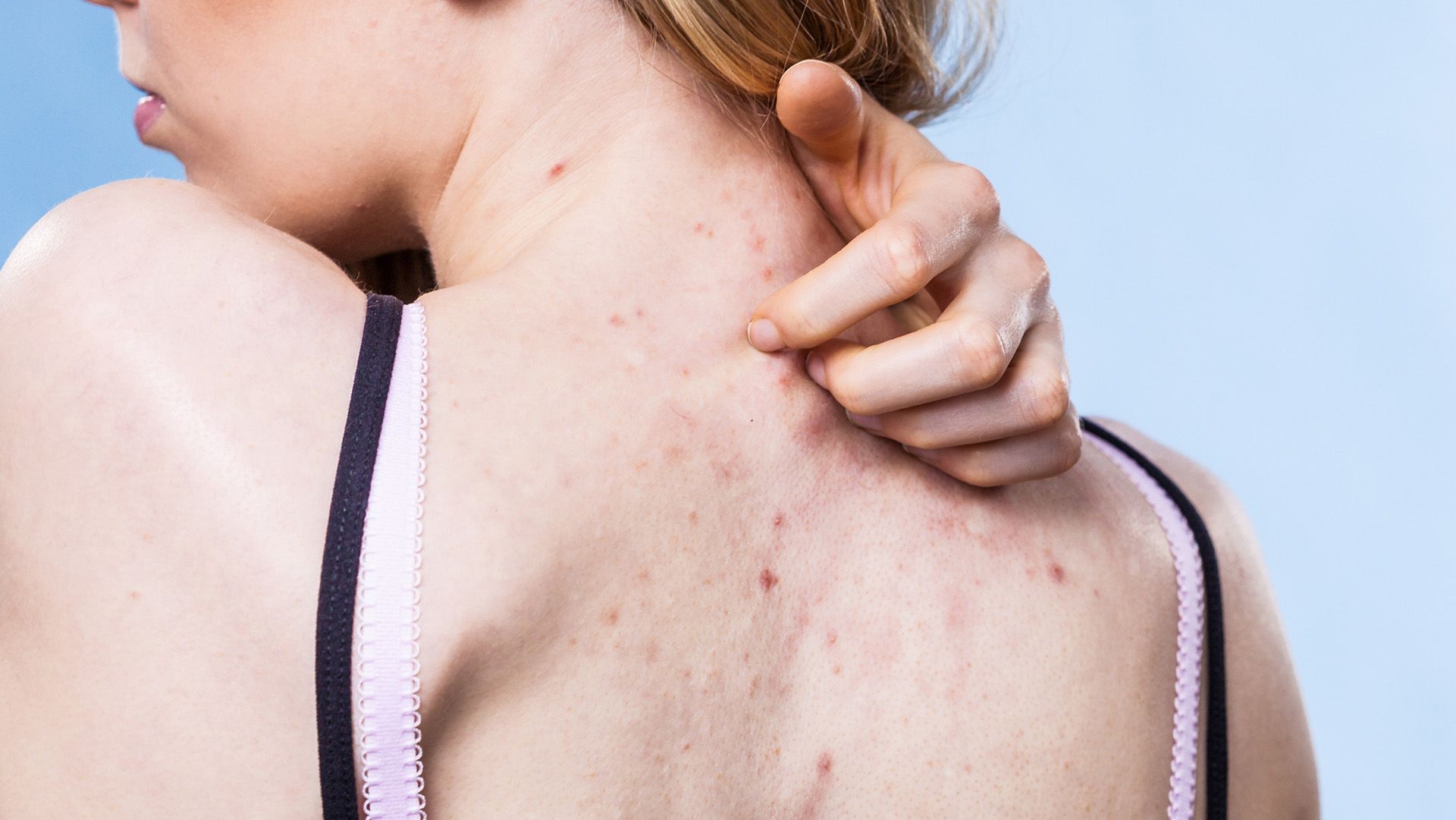Updated on August 19, 2022
Hidradenitis suppurativa (HS) is a chronic skin condition that can cause boil-like nodules and abscesses, and can lead to scarring (sometimes severe) and tunnels forming beneath the skin. It typically affects the areas of the body where skin folds against skin, such as the underarms, pelvic region, and under the breasts. HS can be painful, distressing, and debilitating and requires diagnosis and treatment by a dermatologist.
Here, we look at five answers to questions about HS.
How common is HS?
In the past, HS was thought of as a rare disease. One reason for this is that in previous decades, only severe cases of HS were reported, while mild or early stages of the disorder were missed or misdiagnosed. It is now understood to be more common than previously believed.
The prevalence of HS remains difficult to calculate, and estimates vary. It is known that HS is more common in women than in men (at a ratio of 3 to 1, approximately). Symptoms typically appear in puberty or in early adulthood, though in some cases HS affects people who are older.
What causes HS?
The exact cause of HS is unknown. It is believed to be a combination of genetic factors and environmental factors. A significant number of people who have HS have a close family member with HS, and there are several gene mutations that have been associated with HS in some cases.
Several risk factors have been associated with HS, including obesity and smoking. HS is also associated with numerous other conditions, including thyroid disease, diabetes, inflammatory bowel disease, polycystic ovary syndrome, inflammatory bowel disease, arthritis, and metabolic syndrome.
Are there other names for HS?
HS has been known by several different names over the years:
- Acne inversa
- Apocrine acne
- Apocrinitis
- Velpeau's disease
- Verneuil’s disease
- Pyodermia sinifica fistulans
- Hidradenitis axillaris
Some of these names are outdated and some are more commonly used than others.
Is there a cure for HS?
There is no cure for HS and the condition does not go away on its own. Symptoms are described as recurrent or relapsing, meaning they can get better at times and worse at other times. Even if symptoms have eased, it is important to understand that the disease has not gone away completely. Treatment can help prevent HS from progressing and causing scarring.
What is the best treatment for HS?
There is no single best treatment for HS. Treatment will depend on the severity of a person’s symptoms and other factors. HS can be treated with medications, specific skincare routines, surgery, or a combination of therapies. It may also involve lifestyle changes, such as losing weight or quitting smoking.
While different treatment approaches are appropriate for different people, the main goals of a treatment plan for HS are:
- To address existing symptoms, including lesions and pain.
- To prevent further symptoms and complications like scarring.
- To address the mental and emotional impact of HS, which can be significant.
If you have HS, the best thing you can do is work with a dermatologist who can accurately diagnose the disorder and prescribe a treatment plan tailored to your needs and symptoms.






